- Category
- Anti-Fake
Hunted, Tortured, Killed. The Grim Fate of Journalists Under Russian Occupation
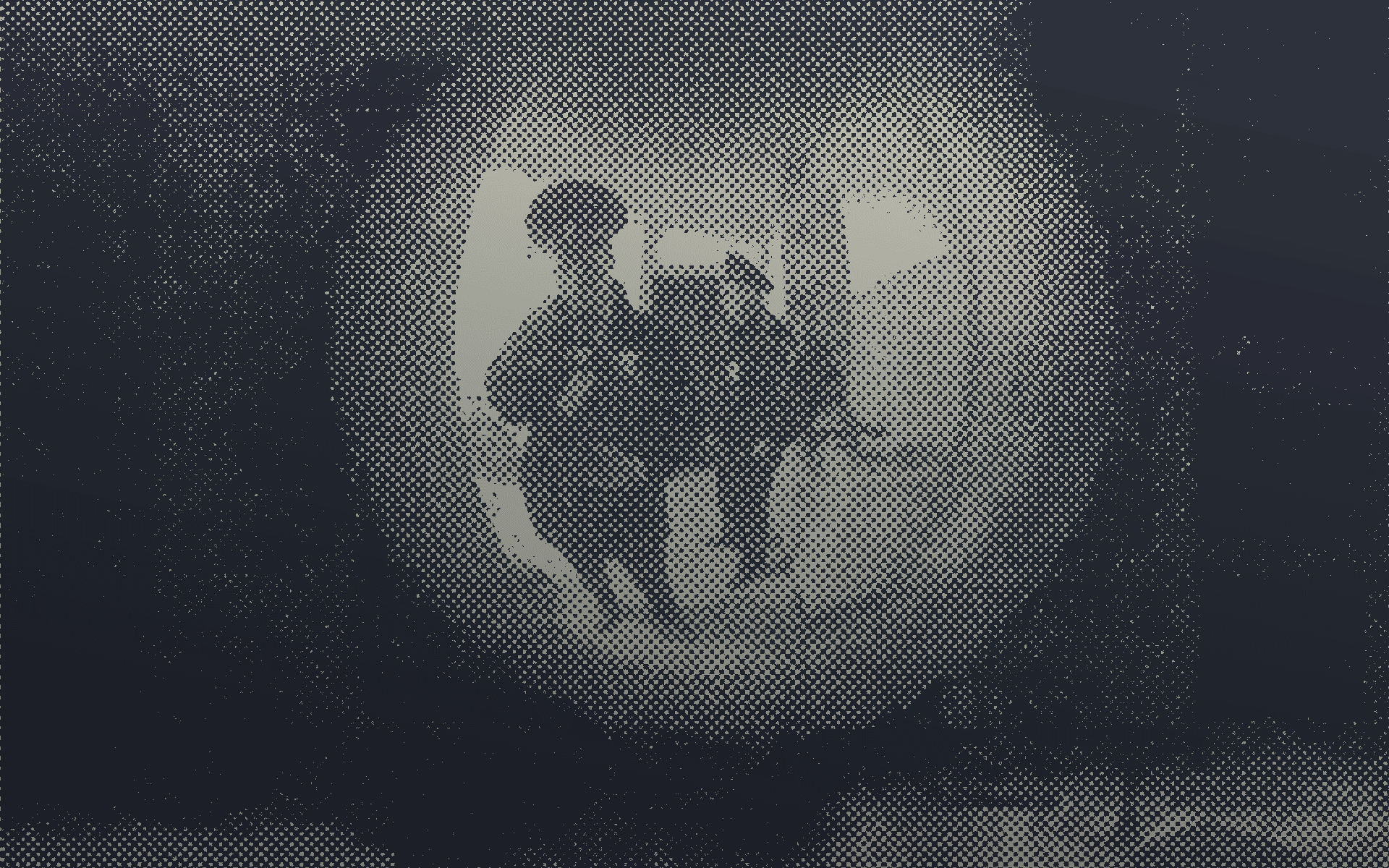
"Current whereabouts remain unknown" is the reality for many Ukrainian journalists captured and detained by Russian forces. Even before the full-scale invasion in 2022, reporters covering Russian aggression in occupied territories faced arbitrary arrests, kidnappings, and torture—a pattern that continues today.
“There are no more Ukrainian media outlets in the territories captured by Russia,” says Nastya Stanko, a Ukrainian journalist and editor-in-chief of Ukraine’s investigative agency Slidstvo.Info. But there are independent journalists in Russian-occupied Ukrainian regions who report anonymously—and they are hunted.
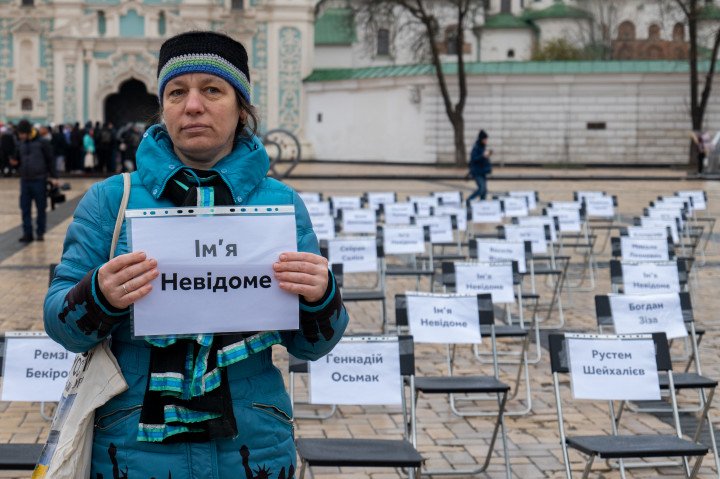
Between 2015 and 2017, using a pseudonym, Ukrainian journalist Stanislav Aseyev published frequent reports about life in Russian-occupied Donetsk—his hometown. Then, one day in the early summer of 2017, he disappeared.
Russian officials confirmed on July 16, 2017, that Aseyev had been kidnapped by militants of the so-called “Donetsk People’s Republic.” Aseyev would spend a total of 962 days in Izolyatsia—a former urban art space that the Russians converted into a concentration camp for anyone, men and women, that they believed held “anti-Russian” sentiments. The list of what could be perceived as anti-Russian was a highly subjective and absurd construct—a patriotic tattoo, such as a tryzub was enough “evidence” for the occupiers to detain, interrogate, torture, and often kill, civilians.
Aseyev’s memoir, “Torture Camp on Paradise Street” gives readers a look into the terror—electric shocks, sexual sadism, and psychological torture—that go on behind the walls of Russian prison camps.
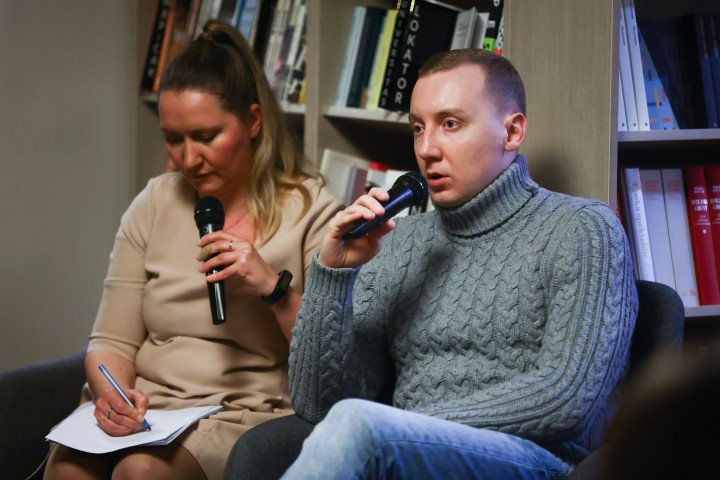
Specifically, he recalls a variety of methods used to break the Izolyatsia detainees and provide their dementors with entertainment. Tub rides involved placing a victim into a round metal tub and repeatedly shoving them into a wall with as much force as possible. In between the “rides,” they would be kicked and beaten. Loud music blasted at all hours of the night, guards beat elderly women, men were forced under their beds and made to bark like dogs, and fathers and sons were tortured together on the same table until they lost control of their bodily functions in one another’s presence. An average day in the solitary cells often entailed nothing more than a cup of boiling water for dinner, staying warm by clutching onto plastic bottles filled with urine, and short showers permitted once every three weeks. Several inmates are known to have been murdered behind the heavily guarded walls.
Izolyatsia is just one of the 160 illegal prisons operated in Ukraine’s temporarily Russian-occupied territories.
600km away in Simferopol, Vladyslav Yesypenko, a Ukrainian journalist covering Crimea, social issues, and the environment, was detained in March 2021 by the FSB on falsified charges of “illegal production, repair, or modification of firearms” and espionage. Later, a planted grenade lacking fingerprints was discovered in his vehicle. Like Aseyev, Yesypenko was tortured with electric shock, saying, “My eyes hurt and my brain almost boiled…” Three years on from his arrest, Yesypenko remains illegally detained in Russian occupation. He is one of 28 currently imprisoned Ukrainian journalists, as reported by the Council of Europe.
Journalism as a crime in Russian-occupied Crimea: The cost of speaking out
Citizen and independent journalists in Crimea represent a significant and disproportionate number of those targeted.
Amet Suleymanov
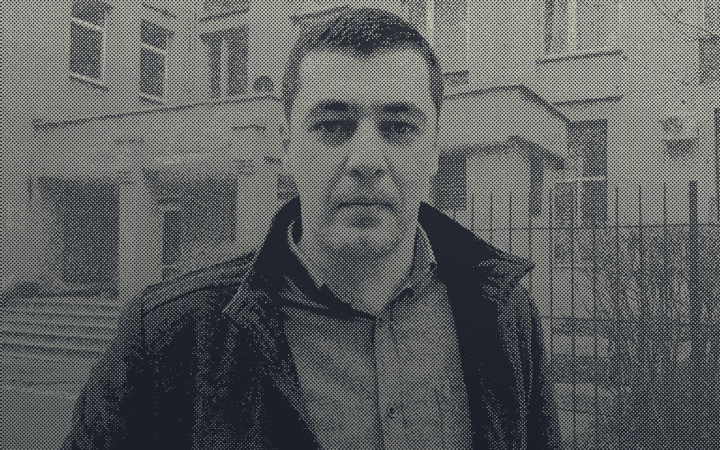
The FSB arrested Crimean Tatar Amet Suleymanov in March 2020 following a raid of homes in Bakhchisarai. Suleymanov’s crime? Reporting on Crimea’s indigenous population, bringing to light Russian raids targeting local activists, and interviewing victims’ family members and lawyers. For this, Russia’s Southern District Military Court in Rostov-on-Don convicted Suleymanov on charges of terrorism and sentenced him to twelve years in a penal colony, the modern-day equivalent of a gulag. Suleymanov’s family fears for his life as he’s been deprived of his necessary heart disease medications since detention.
Ruslan Suleymanov
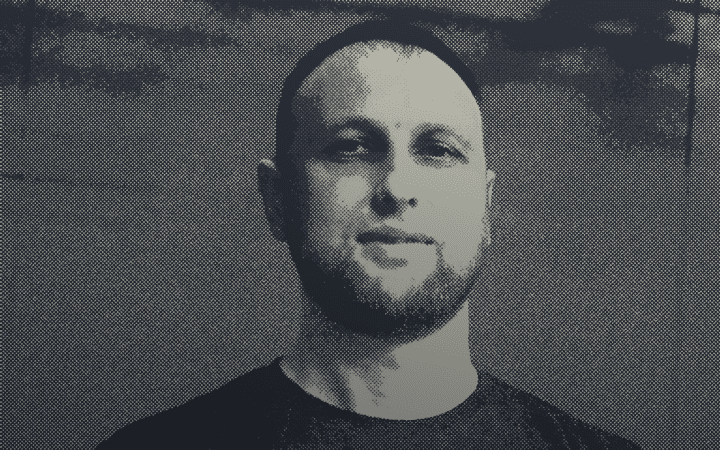
Like Amet, Ruslan Suleymanov was arrested by the FSB on charges of terrorism and an “attempt to seize power or disturb the constitutional order in Russia.” He reported frequently on human rights abuses in occupied Crimea. Three years after his initial arrest, Suleymanov was sentenced to 14 years of imprisonment in a high-security colony and transferred to Novocherkassk, Russia—a city with a history of repression, where the Soviet army and KGB carried out a massacre against striking workers in 1962.
Ernes Ametov
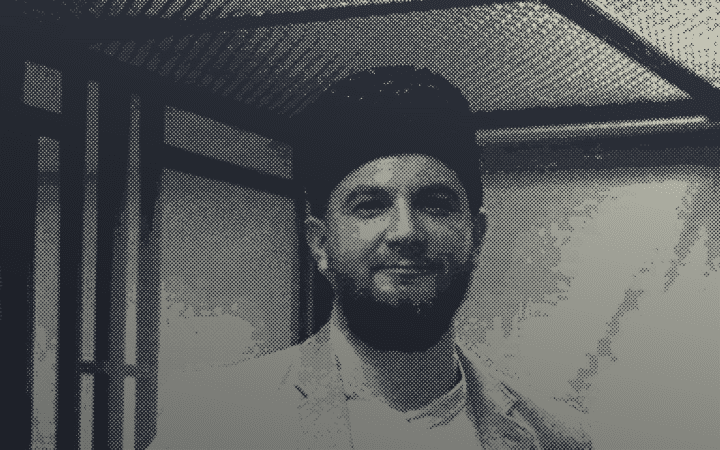
Ametov was arrested on October 10, 2017, as part of Russia’s crackdown on “Crimean Solidarity,” a local human rights collective, and sentenced to 11 years imprisonment in a Russian penal colony on, predictably, charges of terrorism. Speaking about his show trial, Ametov said, “The court reminded me of a conveyor belt rolling out can lids, the trial was so perfect, eerily rapid, and coordinated to perfection—as if they were not deciding the fate of a person, just rolling out another can. [To the court, it was] nothing personal, just business.”
Iryna Danylovych

Working as both a nurse and citizen journalist in Vladyslavivka near Feodosia, Danylovych reported primarily on the rights of healthcare workers and political trials. Like Aseyev in Donetsk, she wrote anonymously. And like Aseyev—she was captured. On April 29, 2022, Russian plain-clothes officers abducted her. Her home was searched, the abduction was recorded on video and she was tortured and starved throughout the process. Like Yesypenko, she was charged with “illegal possession of explosives.” On December 28, 2022, she was sentenced to 7 years in prison; during pre-trial detention in Simferopol, Danylovych nearly lost her hearing due to the conditions in the center.
These are just a handful of the stories from Crimea, there are many more collected by Ukrainian human rights center Zmina. At the time of writing, Russia keeps at least 15 Crimean journalists detained on false charges.
Hunted online, kidnapped offline: How Russian forces target Ukrainian journalists
Outside of Crimea, journalists continue to be indiscriminately persecuted by the Russians.
Even administrators of Ukrainian Telegram channels such as “RIA Melitopol” and “Melitopol is Ukraine” have been identified and held captive after Russian forces hacked the channel.
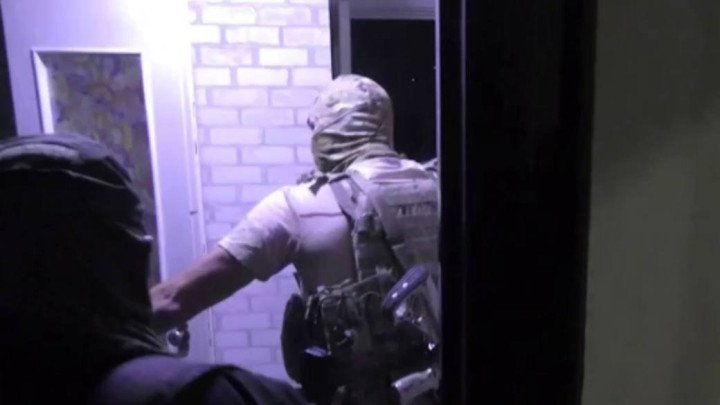
Oleksandr Malyshev, Heorhiy Levchenko, Maksym Rupchov, Yana Suvorova, Mark Kaliush, and Kostiantyn Zinovkin have all been charged with terrorism, high treason, and espionage for their participation in the Telegram channels’ reporting. Regarding their arrests, Ria Melitopol South reported, “FSB officers in balaclavas, armed with machine guns, jump over fences, break down doors, grab people and take them out of the house handcuffed. Then, the propagandists filmed their remorse and confessions, which were extorted in a well-known way. There is even a 19-year-old girl and a boy with schizophrenia among the prisoners.” Each of them faces 12-20 year sentences.
Anastasia Hlukhovska, a reporter for Ria Melitopol, was kidnapped by the FSB officers in balaclavas alongside the Telegram admins. According to her sister, Hlukhovska had resigned from her job once Melitopol fell to Russian occupation, fearing for her life. Still, she was hunted and tracked down. Her conditions and whereabouts are unknown as there is no official statement regarding her disappearance, only a video with footage of the kidnapping. She is considered a missing person to this day.
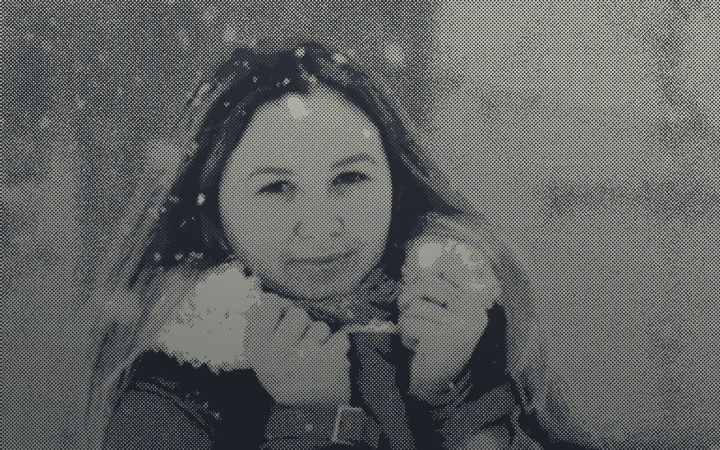
Some journalists have been targeted more than once, even after their initial release. Russians first arrested Zhanna Kyselova, a journalist for the local newspaper Kakhovska Zorya (the Kakhovska Star), on September 19, 2022. She was detained in Kherson’s infamous basements, better known as Russian torture chambers. Then, on June 27, 2024, Russians stormed her home, detaining the journalist once again. Her current whereabouts remain unknown.
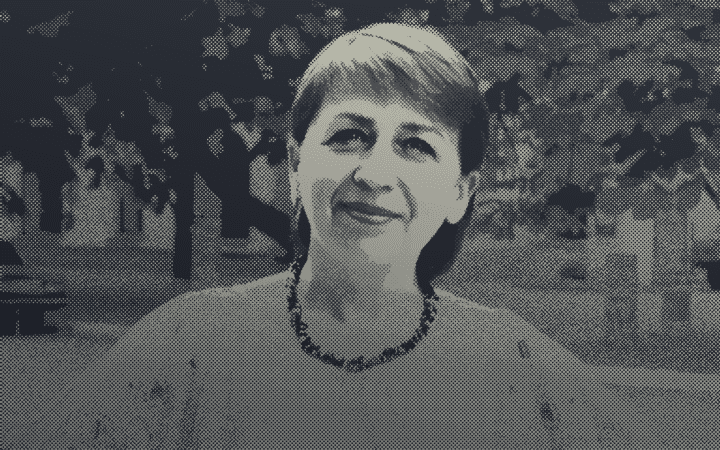
Reporting under siege: The situation today
Since the beginning of the full-scale invasion on February 24, 2022, 18 Ukrainian and foreign journalists have been killed by Russian forces while reporting on the war and an additional 76 journalists have been killed in the line of duty while serving in the Ukrainian Armed Forces, reports the National Union of Journalists of Ukraine (NUJU). 9 more lost their lives as civilian victims.
One of the most recent losses for Ukraine and the broader journalism community is Viktoriia Roshchyna, a journalist for Hromadske and freelance writer for Ukrainska Pravda. She had been reporting from the frontline from the first days of the full-scale invasion and was initially detained by Russian forces in early March 2022, while on assignment in Russian-occupied Berdyansk. The city was occupied on the third day of the full-scale invasion and news of her disappearance became known on March 16, 2022.
Following her release, she went on to cover the Siege of Mariupol and received the Courage in Journalism award.

On August 3, 2023, Roshchyna’s family lost contact with her; she went missing while reporting from Russian-occupied territories, again. Like Kyselova, she was detained a second time. In April 2024, the Russian authorities admitted that she was captive.
Leading up to her death, talks relating to her exchange were in progress. She died on September 19, 2024, during transportation from Taganrog to Moscow. The journalistic community has stated, “We have every reason to believe that her death was either the result of a deliberate murder or the result of the cruel treatment and violence to which she was subjected during her time in Russian captivity.”
Her body has yet to be returned to Ukraine.
Killing writers and not returning their bodies for proper burial is a Russian tradition dating back nearly a century to the Executed Renaissance . Valerian Pidmohylny, a talented writer and founder of Ukrainian intellectual prose, remains in Sandarmokh, where he was executed in 1937. The bodies of Mykola Kulish—a Ukrainian writer and journalist, and Mykola Zerov—a leading voice in neoclassicism, have also never been returned to Ukraine.
In his work “The People’s Prophet,” Kulish wrote, “Ukraine is singing beyond the graves in the valley”—a reality that remains true to this day, as countless Ukrainian voices have only symbolic resting places in their homeland. Like a century ago, Russians continue to torture and kill Ukrainians for the crime of being Ukrainian.
-8fda54010650befcec1e2c4d694c566b.jpg)
-3db1bc74567c5c9e68bb9e41adba3ca6.png)



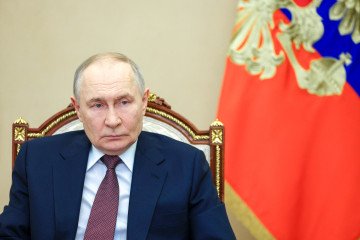
-f88628fa403b11af0b72ec7b062ce954.jpeg)